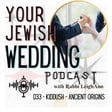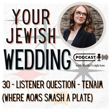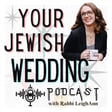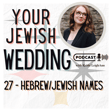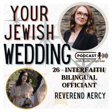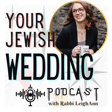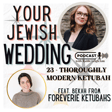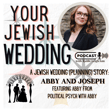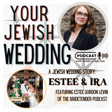
My Annual Apology - 5786
I probably made a bunch of people upset years and years ago - but I can't remember all the details. (There's a reason you're supposed to apologize as soon as you mess up.) Between Rosh HaShanah and Yom Kippur, Jews are called to do an honest accounting of our souls, and to make amends where we can. In this episode, I'll explain that a little more, and why MY apology, however imperfect, is pretty necessary right now.
Links:
Today is not yesterday - https://www.chabad.org/library/article_cdo/aid/1612482/jewish/Today-Is-Not-Yesterday.htm
Gam Zeh Yaavor -
https://www.ansheamunim.org/gam_zeh_yaavor
Cheshbon haNefesh
https://mussarinstitute.org/cheshbon-hanefesh-3/
Detours and Destinations Podcast
https://www.92ny.org/archives/featured-series/detours-and-destinations
Epsiode with Rabbi Shira
https://www.92ny.org/archives/detours-destinations-rabbi-shira-stutman
Rabbi Shira’s podcast
Don't forget - you can reach me (Rabbi LeighAnn) any time at www.yourohiorabbi.com or everyonesfavoriterabbi.com or rabbileighann.com !
Fill out the contact form there if you'd like to work with me on your wedding. There are SO many options, from Ketubah consulting to ceremony planning. If there's something you have in mind, don't hesitate to ask - I'm here to help!
IG: @yourohiorabbi
Podcast IG: @yourjewishweddingpodcast
Send questions for me to answer on this podcast to:
yourjewishweddingpodcast@gmail.com
Hope to see you next time! Remember - there is ALWAYS more learning to do!
<3 Rabbi LeighAnn
